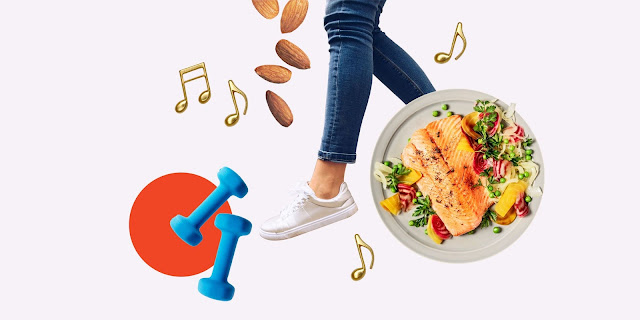Weight Loss Tips
Effective tips to lose weight
Strange and impossible to follow advice, "miracle" diets with no evidence behind it, and other unsubstantiated claims sometimes plague the field of nutrition information.
But, over the years, scientists in the field of nutrition have definitely been able to prove that some strategies are effective when losing weight. It is time to review them.
 |
| Weight loss |
Drink water, especially before meals
Drinking water can speed up your metabolism by 24-30% in 1 to 1.5 hours, helping to burn off some extra calories.
One study showed that drinking a pint of water an hour and a half before meals helped dieters lose 44% more weight loss.
Eat eggs for breakfast
Eggs have many benefits, including helping you lose weight.
Replacing a cereal-based breakfast with eggs can lead to fewer calories in the next 36 hours, losing weight and body fat.
And if eggs can't be eaten for some reason, any other quality protein source works too.
Drink coffee (preferably black)
Coffee has sometimes been unfairly demonized. When it's of good quality, it's packed with antioxidants and numerous ways to support good health.
Caffeine can increase metabolism by 3-11% and fat elimination by 10-2%.
Of course: you have to make sure not to add large amounts of sugar or other high-calorie ingredients since that would cancel all its benefits.
Drink green tea
Green tea contains small amounts of caffeine, but it also includes powerful antioxidants called catechins, which are believed to work in synergy with caffeine to enhance the fat-burning effect.
Although the evidence is not entirely firm, many studies show that green tea (both the drink and the extract in supplement form) can help you lose weight.
Cooking with coconut oil
Coconut oil is very healthy. It is high in medium-chain triglycerides, which are metabolized differently than other fats.
These triglycerides have been shown to raise metabolism by up to 120 calories a day and also reduce appetite, which could end up consuming up to 256 fewer calories per day.
The idea is not, however, to add it over something that has already been cooked in the traditional way, but to replace some of the fats that are usually used in cooking with coconut oil.
Take glucomannan
Glucomannan is a fiber that, in several scientific studies, has made research subjects lose weight.
It absorbs water and settles in the intestine for a time, making you feel more full and helping you consume fewer calories.
And people who take glucomannan supplements have been shown to lose slightly more weight than those who don't.
 |
| Weight loss |
Cut back on added sugars
Most people eat too much added sugar. This consumption is strongly associated with the risk of obesity and diseases such as type 2 diabetes and heart problems.
If you want to lose weight, you need to cut back on added sugar and high fructose corn syrup. And be sure to read food labels carefully, as many supposedly healthy products are sometimes full of sugar.
Eat less refined carbohydrates
Refined carbohydrates are usually sugars or grains that have been stripped of their fibrous and nutritious parts.
Scientific studies show that refined carbohydrates can raise blood sugar quickly, leading to hunger and cravings, and increased food intake within hours. Consuming them is strongly linked to obesity.
Thus, if carbohydrates are to be consumed, it is better to ensure that they are being consumed with their natural fiber included.
Eat more vegetables and fruits
Both vegetables and fruits have properties that make them very effective for weight loss.
They contain very few calories, but a lot of fiber. They are also rich in water, which gives them a low energy density. In addition, they take time to chew and provide satiety.
Several studies show that people who consume them tend to weigh less. These foods are also very healthy and nutritious, which is why eating them is important for reasons other than losing pounds.
Control portions or count calories
Anything that contributes to being aware of what you eat is useful. So controlling portion sizes or counting calories can be a good idea, for obvious reasons.
Studies also show that keeping a food diary, writing down what you eat each day, or taking pictures of what you eat, can contribute to weight loss.
Not dieting, but eating healthy
Most diets generally don't work in the long run. In fact, studies show that dieting consistently predicts future weight gain.
Instead of dieting, it's better to aim to become healthier, fitter, and happier. Focus on nourishing the body instead of depriving it of things. Thus, weight loss will come as a natural side effect.
 |
| Weight loss |


No comments